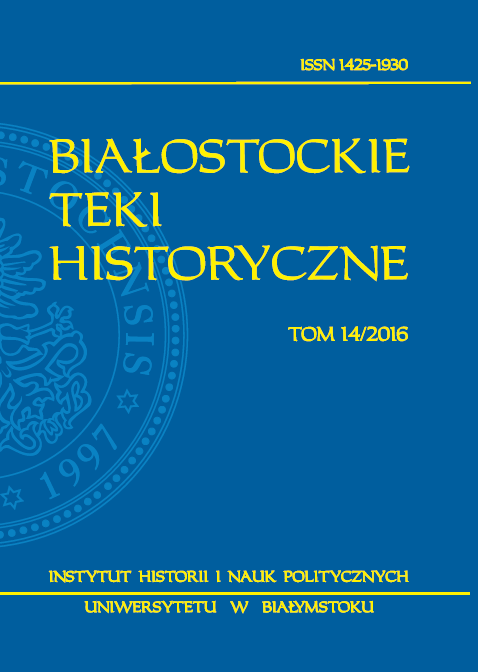Ewolucja poglądów Jana Olbrachta i Aleksandra Jagiellończyka w kwestii kształtu unii polsko-litewskiej
Evolution of Jan Olbracht’s and Aleksander Jagiellończyk’s views on the shape of the Polish-Lithuanian Union
Author(s): Łukasz GodlewskiSubject(s): History, Political history, 15th Century, 16th Century
Published by: Wydawnictwo Uniwersytetu w Białymstoku
Keywords: Polish-Lithuanian Union; Union and Articles of Mielnik; J an Olbracht and Aleksander Jagiellończyk
Summary/Abstract: In consequence of Kazimierz Jagiellonczyk’s death in 1492, the Polish and Lithuanian throne, after the 46-year-long personal union, again came under the rule of two different rulers – Jan Olbracht was on the throne in Cracow and Aleksander Jagiellończyk in Vilnius. My research pertaining to the evolution of Jan Olbracht’s and Aleksander Jagiellończyk’s views on the shape of the Polish-Lithuanian Union proves that in several respects, e.g.: political situation, external threats, interests of the Jagiellonian dynasty, their standpoint changed with time. Yet, undoubtedly, the major factor deciding about the change in the viewpoint on the shape of the Polish-Lithuanian Union was the casus of having a male heir. As long as the brothers believed they could count on offspring, the Jagiellonians restricted Polish-Lithuanian relations to the military-political alliance. Yet, when Jan Olbracht and Aleksander Jagiellończyk realized they would die childless, the interest of the Jagiellonian dynasty became their priority. The original reluctance to fulfill former union provisions, which provided for closer cooperation within the union, and even incorporation of the Grand Duchy of Lithuania into the Crown, evolved towards the establishment of a unitary and hereditary Jagiellonian monarchy consisting of Poland and the Grand Duchy of Lithuania.
Journal: Białostockie Teki Historyczne
- Issue Year: 2016
- Issue No: 14
- Page Range: 11-40
- Page Count: 30
- Language: Polish

